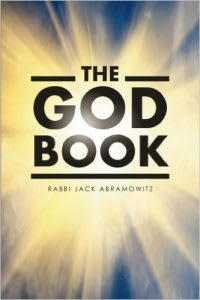11. Torah vs. Science
The articles in this series are based upon ideas expressed in the Rambam’s Moreh Nevuchim (The Guide for the Perplexed). Numbers in brackets represent the volume and chapter of Moreh Nevuchim where these ideas are discussed.
--------------------------------------
Nowadays, when we speak of intelligent design, our focus tends to be on the "intelligent" part, i.e., that it was God Who created the universe. For the Rambam, the emphasis was on "design," i.e., that the universe was created at all (as opposed to always existing).
The best proof for intelligent design, the Rambam tells us, is the motion of the heavenly bodies - their orbits, their speeds, their distances. [II, 19] He demonstrates that the prophets, when wanting to prove the existence of a Creator, always pointed to the stars and other celestial objects. Avraham reflected on the stars (the Rambam says that this is well-known, probably a reference to the Midrash in which Avraham inferred the existence of God through the process of elimination); he also referred to God as "God of the Heavens" (Genesis 24:7). Moshe referred to God as metaphorically "riding on the Heavens" (Deuteronomy 33:26). Yirmiyahu called Him "the Maker of the Heavens" (presumably a reference to Jeremiah 33:2). Yeshaya encouraged the people to learn about God by saying, "Lift up your eyes and behold Who has created these things" (Isaiah 40:26).
Surprisingly, the reason we reject the idea that the universe always existed is not because of the Torah's creation account. [II, 25] Yes, the Rambam says, the Torah describes the creation of the universe, but it contains far more descriptions of God as a corporeal Being. We have no problem saying that terms like "hand of God," "throne of God," etc. are allegorical. Similarly, if the eternity of the universe were proven, we could easily write off the creation account by considering it a metaphor. However, there is a major difference between the two cases: the incorporeality of God has been proven, necessitating the interpretation of verses to the contrary as metaphors. The eternity of the universe has not been proven and we do not abandon the literal understanding of Biblical verses in order to accommodate a theory.
It's noteworthy that the Rambam says that he would be willing to relegate the creation account to allegory if the eternity of the universe were proved. In his day, the debate was about whether or not the universe was created; today, we generally accept that it was created and we merely quibble about how long ago. If, given sufficient proof, the Rambam would be willing to accept that the universe always existed, it seems a small leap that he could accept a 15-billion-year-old universe if compelling enough proof were provided.
As an aside, this is not the first time in Moreh Nevuchim that the Rambam advocates re-evaluating preconceptions in light of compelling scientific evidence. For example, in ancient times, it was believed that the motion of heavenly bodies produced loud and terrifying sounds known as "the music of the spheres." [II, 8] This was logically extrapolated based on the observation of objects here on Earth. Imagine the doppler effect when a car or an ambulance speeds past. Now, given the size and velocity, imagine what it must sound like if the moon or Saturn were to speed past you. The Sages of the Talmud also believed in this phenomenon, which we know not to be the case. The Rambam tells us that in this matter, the scholars of other nations defeated the Sages of Israel - a reference to Pesachim 94b - and the Sages abandoned the belief. The Rambam says it is appropriate for them to have abandoned a speculative belief in favor of demonstrated evidence.
When considering contemporary debates on "Torah vs. science," it's important to consider the Rambam's willingness to accept demonstrated scientific fact. It's equally important to note his unwillingness to abandon the literal meaning of the Torah unless the facts absolutely require it.
Getting back to our main point, if the universe always existed, it would necessarily be unchanging. [II, 25] There would be no room in an unchanging universe for miracles, which go counter to the laws of nature. Not only would we have to consider the creation account as allegorical, every miracle in the Bible would have to be considered a metaphor. This, of course, bodes poorly for any accompanying prophesies. A created universe, however, would allow for the possibility of miracles and all that they entail. Therefore, so long as the alternative has not been proven, we stick with our understanding of a created universe as we learn it from the Torah, even though we may not be able to definitively prove its accuracy.

